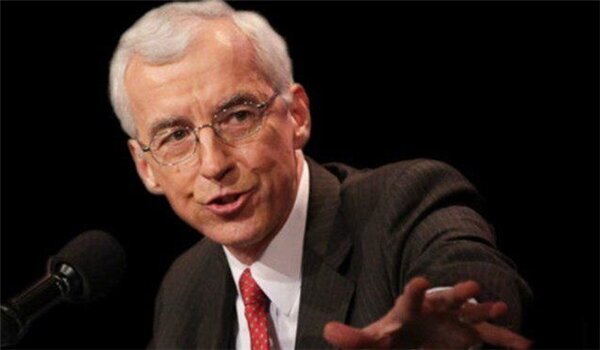
TABNAK– Professor Paul Pillar, who was CIA intelligence analyst for 28 years, says Israel's ground attack on Lebanon will not be limited to the south of the Litani River.
“Israel would want to use ground operations, in addition to their continued aerial attacks, to destroy or degrade as much of Hezbollah's capabilities as possible,” Pillar told Tabnak News Agency.
Following is the full text of the interview.
Q: In your opinion, what were the goals of Israel's assassination of Hassan Nasrallah?
A: This operation, as with many of Israel's violent actions, incorporates the belief that Israel is threatened by nations or groups that supposedly are determined to destroy Israel, and that Hezbollah is one of those groups. The further belief is that the only proper Israeli response is to kill as many members of those groups as possible, and preferably to kill their leaders. There is nothing new about this in Israeli policy. Israel conducted assassinations in the past of prominent Hezbollah figures, including Imad Mughniyah and Nasrallah's predecessor Abbas al-Musawi. Israel had planned the assassination of Nasrallah for a long time. The situation which arose over the past year, in which Hezbollah fired into Israel as a show of support for Hamas in the Gaza Strip, and in which residents of northern Israel were evacuated from their homes, has provided the occasion for carrying through with those plans. In addition to all this are the personal motives of prime minister Benjamin Netanyahu, who favors a continuing and even escalating war to keep his far-right coalition together and for him to stay in power.
Q: It seems that Israel is preparing for a ground attack on southern Lebanon. Will this attack be limited to creating a buffer zone?
A: Creation of some sort of buffer zone--similar to what Israel created in the 1980s--would be a principal objective of such an attack, but Israeli offensive operations would not be limited to that part of Lebanon. Israel would want to use ground operations, in addition to their continued aerial attacks, to destroy or degrade as much of Hezbollah's capabilities as possible. Previous Israeli invasions of Lebanon have gone as far north as Beirut.
Q: After the assassination of Nasrallah, will Israel take action against Syria or Yemen's Houthis?
A: Israel already is taking such action. The Israeli air campaign in Syria--aimed especially at Iran-related targets--has been going on for some time. Israel has also recently conducted air attacks against the Houthi-controlled portion of Yemen. Such air attacks will continue, but this does not mean ground operations in Syria or Yemen.
Q: Some argue that Israel wants the continuation of chaos in the Middle East and does not start a big war. Don't the recent developments contradict this view?
A: There are different views about this within Israel. Most leaders of the Israeli military, aware of how their forces already are stretched and will be stretched more if there is a ground invasion of Lebanon, probably do not favor a wider war. But Netanyahu does favor a wider war and specifically would like to drag the United States into direct involvement in such a war, especially one fought partly against Iran.
Q: Some people argue that before the US elections, Israel plans to somehow drag Iran into war. Is it possible for Israel to do something to force Iran to fight directly?
A: Israel cannot force Iran into a fight and neither can anyone else, short of conducting a direct attack on Iran. Although there are multiple opinions in Iran, just as there are in Israel, about a wider war, so far it appears that those who control Iranian policy, and specifically the Supreme Leader, are trying hard to avoid getting dragged into such a war. Israel has been attempting to goad Iran into a war, with actions such as the attack on the diplomatic compound in Damascus and the assassination of Haniyeh in Tehran, but the Iranian response so far has been one of restraint (including the limited nature of the missile and drone salvo in April, which was designed to cause minimal damage). Perhaps more Israeli goading will at some point exhaust Iranian patience and lead to a more forceful response. But one of the strongest arguments in Tehran against such a response is that this would play into Israel's hands and involve doing exactly what Netanyahu wants Iran to do.